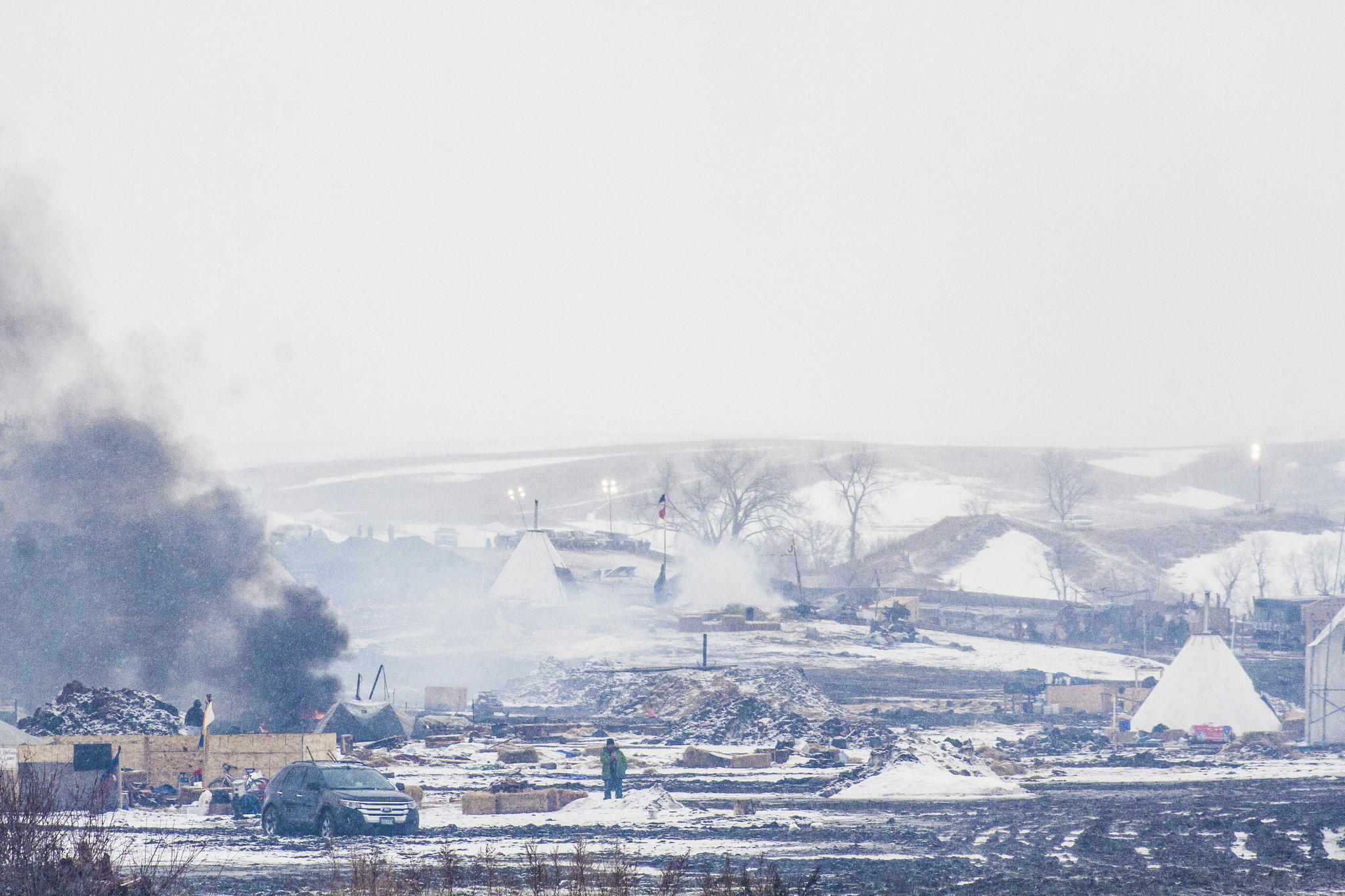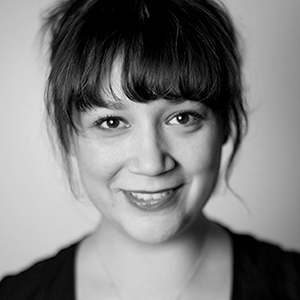Oka, Ipperwash, Caledonia,
Standing Rock
Four markers in history: Oka, Ipperwash, Caledonia, Standing Rock. When I hear these names, flashes of newsclips, worried family discussions, and racist remarks overheard in line at the bank or grocery store run through my mind. There have been others, of course. Other standoffs, protests, movements. But these are the ones that shaped me. These are the ones I think about on a daily basis.
Stage One: Oka. 1990. Eight years old. Favourite Song: “Impulsive” by Wilson Phillips. Political views: Santa is real.
In 1990 the Mohawk Nation of Kanesatake entered into a seventy-eight-day-long standoff with the Nation of Canada over of the desecration of a Mohawk burial ground.
Three decades earlier, a nine-hole golf course had been built in Oka, Quebec under objection by the Mohawk people, and in 1989 then-mayor Jean Ouellette wished to expand it to an eighteen-hole golf course. Looking back I think this is why I have always disliked golf, and why every time I see a golf course I think of graves.
By the summer of 1990 the Mohawks of Kanesatake had moved onto the area where the proposed expansion was to take place. This act of protest was met by the Canadian Forces’ bayonets, guns, and racism.
I’ve been thinking about this time a lot lately. Oka has been referred to as a “flash point” event, an event that led to other standoffs and protests by Indigenous people in this country.
And although it might be considered a flash point, I wonder how much the average Canadian knows or remembers. There can be a convenient cloud of Canadian amnesia over this incident.
I was in grade three at the time of the Oka Crisis. My parents were in the midst of figuring out their separation. My mom and I bounced around from apartment to apartment until we landed in a townhouse in Brantford, Ontario. Brantford was a mid-sized town that had aspirations of being something much bigger than it ever became. It had all the markings of a town that had tried, given up, kinda tried again, then went for a smoke instead.
I watched my mom watch the footage of the Oka standoff on TV. I was so young that I didn’t know what was going on. As a Mohawk person I knew it involved me in some way but I couldn’t figure out how. I knew it was a big deal, but I didn’t understand why. Slowly, as the weeks passed, I put together in my little head that it was about hate, and how people hated me for who I was. Was it because of the time I shoplifted from Kmart?

Samantha Brown and PJ Prudat in Falen Johnson’s Ipperwash. Photo by Kaylee Dalton
Stage Two: Ipperwash. 1995. Thirteen years old. Favourite Song: “Fake Plastic Trees” by Radiohead. Political Views: Fuck you, Mom.
In 1995 I was living with my mom and stepfather. My mom had remarried after divorcing my dad. She went with a really racist white guy for some reason. He liked the Miami Dolphins, had an in-ground swimming pool, and bought name-brand foods. He would also pantomime around the kitchen doing his “Indian” impression. “Gonna go down to the rez and get a case of Labatt Blue.” I laughed when he first did it. My mom did too.
Around this time I was in the throes of teenage angst. I stole smokes, topped up booze from the liquor cabinet with water, and snuck out. I came to doubt anything and everything my mom and stepfather said, did, or cared about. It was also when the Ipperwash Crisis occurred.
Ipperwash, like many protests, standoffs, and movements, was a longtime coming. In 1942 under the War Measures Act, the Department of Defence forcibly relocated the Chippewas of Stoney Point to neighbouring Kettle Point with the promise that the land would be returned after the conclusion of World War II. This did not occur. Instead, the people of Stoney Point were repeatedly ignored when they asked for the land to be returned.
In 1995 some members and descendants of the Stoney Point Band reclaimed Ipperwash Provincial Park, on the shores of Lake Huron. That is when the Ontario Provincial Police were called in.
I was sitting in the living room on a dusty rose-coloured carpet watching TV when the news began to broadcast coverage of the Ipperwash Crisis. The media had obtained a video of some OPP officers saying: “We had this plan, you know. We thought if we could get five or six cases of Labatt’s 50, we could bait them ….Then we’d have this big net at a pit … Creative thinking …. Works in the [American] South with watermelon.”
This was recorded the day before Dudley George, an unarmed protester, was shot and killed.
I was thirteen, living with a Mohawk mom who had somehow taken on my stepfather’s racist opinions, and Canada had just shot an unarmed protester. I changed then. I thought back to laughing at my stepfather’s racist kitchen pantomimes. I knew then I would never betray my heritage again.
Within the year I was kicked out for arguing with my stepfather. He had called me a “stupid bush Indian” when he was drunk one night. I remember screaming at him, and him kicking my bedroom door in and telling me to get out. The next day my mom drove me to Toronto to see The Phantom of the Opera. I still hate musicals.
Stage Three: Caledonia. 2006. Twenty-four years old. Favourite Song: “First Day of School” by Ice Cube. Political views: Fuck you, Canada.
I had graduated from theatre school in 2005 and gotten a few gigs working with Native Earth Performing Arts and Turtle Gals Performance Ensemble, which helped anchor me in Toronto. Working with these companies also gave me a stronger understanding of who I was. I had grown up on and off the rez my whole life but I don’t think I fully knew who I was as an Indigenous woman until it became tied to art. It was a profound time for me. I learned how art, politics, and ceremony are all intertwined.
Then Caledonia happened. In the summer of 2006 the Douglas Creek subdivision in Caledonia, Ontario attempted to move forward with development of a parcel of contested land. Six Nations band members moved onto the Douglas Creek Estates in objection of the proposed development. The residents of Caledonia did not take kindly to this protest and soon the situation escalated. Barricades went up, confrontations between band member and the residents occurred. It got ugly.
It all felt so strange to me. Six Nations and Caledonia are next to each other. I went to high school in Caledonia. Highway 6, where the protest was, where the barricades were, was the route my bus took to get to school. I had walked down that road for my high school initiation. I had a friend who lived smack-dab between the barricades. On one side, my Haudenosaunee people; on the other, angry villagers. All that was missing were the pitchforks.
As residents of Caledonia sang “O Canada,” I remember giggling and thinking, Seriously? But I also felt a mix of other emotions, including pride and anger. To see us—myself included—standing up to them, saying no to this country that had betrayed us, stolen from us, tried to genocide us, I felt my lineage like never before.
The occupation at Caledonia never really ended, it just cooled. The situation is still very unsettled. My family refuses to shop in Caledonia to this day, which fills me with immense pride.

PJ Prudat, Samantha Johnson, and James Dallas Smith in Falen Johnson’s Ipperwash. Photo by Kaylee Dalton
Stage Four: Standing Rock. 2016. Thirty-four years old. Favourite Song: Podcasts. Political Views: Oh my god Donald Trump just got elected.
The night Donald Trump got elected I cried. I cried a lot. I also drank the better part of a bottle of wine. Okay, I drank the whole bottle.
I didn’t cry because I foresaw the catastrophic future this climate-change denier would inflict upon us, I cried for Standing Rock.
In the spring of 2016 members of the Standing Rock Nation began to protest the Dakota Access Pipeline. A pipeline that would jeopardize their territory’s water source. It was a heartening time. Nations from all over the world gathered in North Dakota in solidarity. On November 8, 2016, I knew the people of and at Standing Rock were going to face even more of an uphill battle. A battle beyond the rubber bullets, water cannons, and frigid temperatures they had already endured.
In January 2017 the protesters at Standing Rock were forcibly removed from the site to make way for the pipeline.
Today. 2018. Thirty-five years old. Favourite Song: “ELEMENT” by Kendrick Lamar. Political Views: Just hold on… for one more day.
I wait and wonder what will happen next. Mostly I wonder how Canada will react the next time there is an uprising. Because next time will happen, it’s just a matter of when. In this post–Canada 150 world, will you stand with us, Canada? Or will you just remain quietly, politely silent?
I really hope not.









Comments